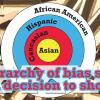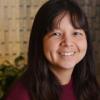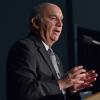Academics
 <p>Police officers and students exhibit an apparent “hierarchy of bias” in making a split-second decision whether to shoot suspects who appear to be wielding a gun or, alternatively, a benign object like a cell phone, research conducted by the CU-Boulder and San Diego State University has found.</p>
<p>Police officers and students exhibit an apparent “hierarchy of bias” in making a split-second decision whether to shoot suspects who appear to be wielding a gun or, alternatively, a benign object like a cell phone, research conducted by the CU-Boulder and San Diego State University has found.</p>
<p>Both the police and student subjects were most likely to shoot at blacks, then Hispanics, then whites and finally, in a case of what might be called a positive bias, Asians, researchers found.</p>- <p> </p>
<p>In a new paper released today in Nature, BioFrontiers Institute scientists at the University of Colorado Boulder, Tom Cech and Leslie Leinwand, detailed a new target for anti-cancer drug development that is sitting at the ends of our DNA.</p> - <p> </p>
<p>Police officers and students exhibit an apparent “hierarchy of bias” in making a split-second decision whether to shoot suspects who appear to be wielding a gun or, alternatively, a benign object like a cell phone, research conducted by the University of Colorado Boulder and San Diego State University has found.</p>
<p>Both the police and student subjects were most likely to shoot at blacks, then Hispanics, then whites and finally, in a case of what might be called a positive bias, Asians, researchers found.</p> - <p>Sean Wiese’s project for a computer science class last year has been developed into a software application now being used by a Boulder nonprofit, and also led to an internship for Wiese with the nonprofit.</p>
- <p>A University of Colorado Boulder-led team has discovered two prime targets of the Hepatitis B virus in liver cells, findings that could lead to treatment of liver disease in some of the 400 million people worldwide currently infected with the virus.</p>
- <p>While a new study led by the University of Colorado Boulder shows the risk of human conflict in East Africa increases somewhat with hotter temperatures and drops a bit with higher precipitation, it concludes that socioeconomic, political and geographic factors play a much more substantial role than climate change.</p>
 <p>While a new study led by the University of Colorado Boulder shows the risk of human conflict in East Africa increases somewhat with hotter temperatures and drops a bit with higher precipitation, it concludes that socioeconomic, political and geographic factors play a much more substantial role than climate change.</p>
<p>While a new study led by the University of Colorado Boulder shows the risk of human conflict in East Africa increases somewhat with hotter temperatures and drops a bit with higher precipitation, it concludes that socioeconomic, political and geographic factors play a much more substantial role than climate change.</p>- <p> </p>
<p>Deborah Jin, an adjoint professor of physics at the University of Colorado Boulder and a fellow of the National Institute of Standards and Technology, has been awarded the L’Oréal-UNESCO For Women in Science award.</p>
<p>Jin also is a fellow of JILA, a joint institute of CU-Boulder and NIST located on the CU campus. She teaches both undergraduate and graduate students and was one of five recipients who each will receive $100,000 at an awards ceremony in Paris next March. She was the only recipient in North America.</p>  <p>As a child, Deborah Jin remembers going to company holiday parties where most of the attendees were men and they assumed she must be there because of her physicist father. But they were mistaken. She was there because of her physicist mother.</p>
<p>As a child, Deborah Jin remembers going to company holiday parties where most of the attendees were men and they assumed she must be there because of her physicist father. But they were mistaken. She was there because of her physicist mother.</p> <div>CU-Boulder Chancellor Phil DiStefano addressed an audience of about 300 in the Glenn Miller Ballroom Tuesday morning in his annual “State of the Campus” address, and offered an update of the Flagship 2030 Strategic Plan and a strategy of “coming together” to improve CU-Boulder’s finances, reputation and the student experience.</div>
<div>CU-Boulder Chancellor Phil DiStefano addressed an audience of about 300 in the Glenn Miller Ballroom Tuesday morning in his annual “State of the Campus” address, and offered an update of the Flagship 2030 Strategic Plan and a strategy of “coming together” to improve CU-Boulder’s finances, reputation and the student experience.</div>
<div> </div>


